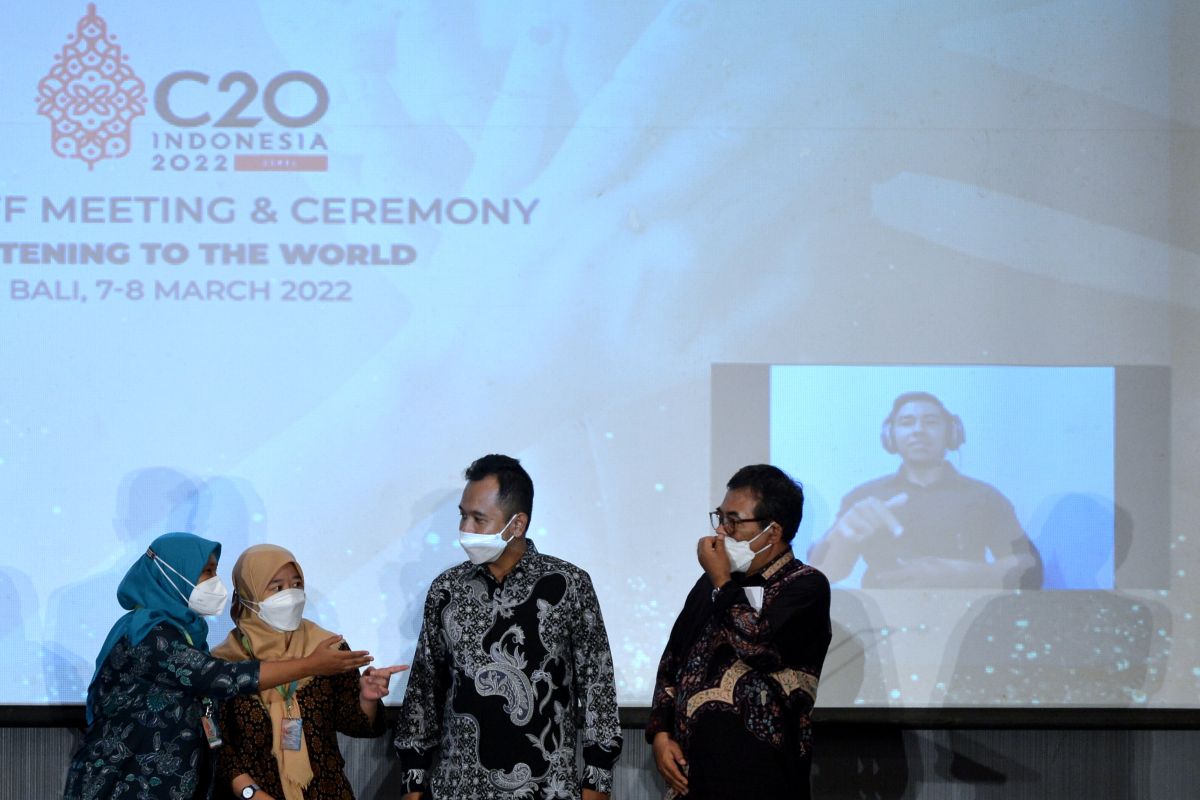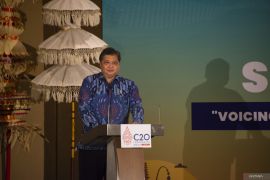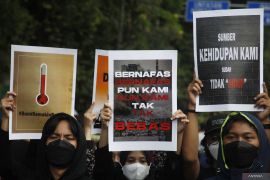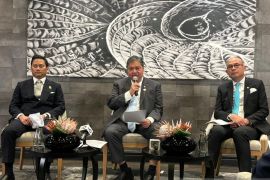This has impacted various aspects of our lives, including food and water insecurity which leads to malnutrition and an increased gap in various countries; in addition, the world economy would also become 10%-18% smallerJakarta (ANTARA) - The Civil 20 (C20) members across the world gathered in Jakarta on 27-28 July 2022 to finalize policy priorities and recommendations from C20 to G20 leaders on the current multidimensional global crises.
71 million people have fallen into extreme poverty in the first quarter of 2022, and more than 250 million people are estimated to be in need of humanitarian assistance and protection by the end of the year.
C20 urges that the multidimensional global crises should be tackled faster, fairer and in a sustainable manner.
It is essential that the G20 leaders put people before politics, for economic growth is not a possible thing without actual contribution of the people’s voices, and active participation of all layers of the communities including women and persons with disabilities.
C20 fruitfully discussed potential ideas and recommendations that are not only inclusive but also addressing the entirety of the current political, economic and social turmoil.
“Representing the voices of civil societies, we call on G20 leaders to make a concrete effort to provide and share resources to prevent and respond to the current crises,” Chair of C20 Indonesia Sugeng Bahagijo said.
The G20 should increase the quantity and quality of funding for the global crises and recognize the non-state actors as humanitarian actors.
It is time for the current leadership to move from ‘doing good for ourselves to ‘doing good for others, Sugeng Bahagijo said.
2022 has the most significant amount of people in need of humanitarian aid to date.
The number still increases and it is driven by COVID-19 pandemic, natural disasters, climate crisis, social-economic injustice, social-political conflict, food and energy crisis, inflation, bad governance and others.
Related news: G20 agriculture deputies urged to support global food resilience
Climate change issues have also become one of the biggest triggers of the escalating global humanitarian turmoil as we are likely to fail to meet the Paris Agreement target, which is to limit global warming to 1.5 degrees C or below.
“This has impacted various aspects of our lives, including food and water insecurity which leads to malnutrition and an increased gap in various countries; in addition, the world economy would also become 10%-18% smaller,” Steering Committee of C20 Indonesia Binny Buchori said.
The food crisis which worsens the current humanitarian crisis is also triggered by spiking inflation and market speculation that has caused a significant increase in food prices.
According to the latest World Bank report, more than 80 per cent of Low-Income Countries (LICs) and Low and Middle-Income Countries (LMICs) have seen inflation levels above 5 percent.
While the G20 agenda to achieve the SDGs requires an inclusive global system that promotes economic growth and job market, financial institutions such as banks, hedge funds and traders are stealing the opportunity to squeeze the benefit of the deregulation of the global food markets which negatively affect the wealth of the low-income community.
Economic and social policies during this multidimensional crisis should be centred on people, with holistic social protection packages, universal healthcare, and basic services made available across borders to reach the most vulnerable.
Related news: ETWG to seek energy transition breakthroughs ahead of G20 Summit
“We are witnessing immense suffering of the people day by day because of the prolonged pandemic, global economic and humanitarian crisis.
While the C20 acknowledges G20’s effort in establishing the proposed Financial Intermediary Fund (FIF) for Pandemic Preparedness, Prevention, and Response (PPR) as a way to escape the crises, it is important for the G20 to ensure the FIF’s transparency, inclusivity, and accessibility of developing countries and Civil Society Organizations (CSOs), and more importantly, to ensure that this not just a new debt.” Nadia Daar of Oxfam International said.
The recent G20 Finance Track’s meeting in July has failed to find common ground on the Ukraine-Russia war, and G20 must realize that the inability and unwillingness of its members to address the issue will create not only a more devastating cost to human lives but also severe economic consequences and a step back in ending poverty.
Responding to the intriguing global crisis data presented by the civil society, Indonesia as the current president of G20 is proposing a strategy to strengthen the recovery and resilience required to withstand future crises in the developing countries, including the last-developed countries and small island developing states.
According to Wempi Saputra, Finance Deputy of G20, solving the global crises in terms of food crises, energy crises and financial crises needs strong collaboration and participation of all stakeholders including civil society organizations, and this needs to be done through collective action.
Saputra also stated his support for the Civil Society Organizations to be provided more spaces of dialogue and conversation with G20 leaders.
Deputy Minister for Economic Affairs Ministry of National Development Planning of the Republic of Indonesia, Amalia Adininggar Widyasanti, who is also part of the G20 Development Working Group, also attended and echoed the importance of strong collaboration and participation of civil society organizations in G20 dialogues.
Related news: G20 EdWG prepares younger generation for world of work: Spokesperson
In these times of multiple crises, it is more important than ever for the G20 to commit to inclusive, transparent and democratic global economic governance, and reach out to the most vulnerable communities, .” Tove Maria Ryding from the European Network on Debt and Development (EURODAD) said.
Decisions on global issues should be made in a forum where all countries can participate on an equal footing, and that forum is the United Nations
With the last remaining quarter before the G20 Leaders summit in November is held, the C20 strongly encourages G20 Leaders to intensify dialogues and engage with Civil Society Organizations to produce a concrete-deliverable and strong-commitment which address and provides more ambitious solutions to the current multidimensional crisis affecting people on a day-to-day basis, C20 Sherpa Ah Maftuchan said.
Related news: B20 asks South Korean businesses to support net-zero programs
Related news: B20 Indonesia urges Japanese businesses to discuss priority agenda
Editor: Fardah Assegaf
Copyright © ANTARA 2022










